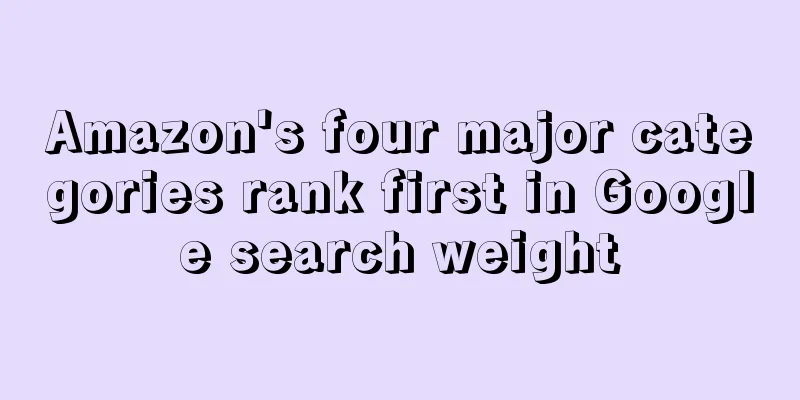Google decides to terminate third-party cookies, and advertisers face new challenges!

|
According to a report on the Forbes website on March 3, Google plans to stop using third-party cookies to track individual users' web browsing habits and no longer recommend advertisements to users in this way. It also promises not to use new information tracking methods to collect user information in the future. Google’s move doesn’t mean the company won’t continue to collect first-hand information from its users, or that all the other mechanisms by which internet users can be identified and used to serve them ads or invitations tailored to their specific interests will disappear, but it does mean that a very particular early chapter in the internet era is coming to an end.
That era was defined by the computer-based web browser, which was made powerful by many innovations, perhaps the first of which was the cookie.
Cookies enable browsers to remember their users, making web navigation easier. They have also helped drive the popularity and commercialization of the web, but have also made users' privacy vulnerable to pop-ups, notifications and other unwanted ads that stick to users wherever they are.
In a blog post about the changes at Google, David Temkin, the company’s director of advertising privacy and product management, wrote: “By evolving digital advertising on its own, we won’t address people’s concerns about privacy and personal information being compromised, and we’re risking the future of a free and open internet.”
Temkin also cited a recent report from the Pew Research Center, which found that 72% of people feel that most of their online activities are tracked by advertisers , tech companies, and others , and 81% believe that third-party data collection does more harm than good .
Temkin said Google will continue to help partners connect directly with their own customers and deepen its support for the solution.
In addition, Google is making adjustments to its Chrome browser so that it can replace third-party cookies, allowing marketers to reach a wider anonymous audience based on users' common interests . As an alternative, Google has launched FLoC (Federated Learning Consortium) , a tool that will target ads “based on interests and large anonymous groups” rather than targeting individuals like today’s third-party cookies. As Temkin puts it: “People don’t have to submit to web tracking to get relevant advertising benefits, and marketers don’t have to track individuals to get the same results.”
For example, instead of showing you ads for golf clubs across the internet based on the ad network knowing that you are browsing for new golf clubs, Google’s Chrome Ad Manager will build an interest profile of the user, identifying the user as part of a group of people, and advertisers can then bid to show their ads to that group of people.
This wave of operations by Google, coupled with Apple’s previous IDFA policy adjustment, may mean that advertisers may be about to usher in a wave of industry “revolution”. Sellers should also learn more about it and be prepared! Cookies |
>>: Good news! Jordan raises the tax-free limit for overseas online shopping to 1,800 yuan
Recommend
What is Hotwire? Hotwire Review, Features
Hotwire was one of the first online travel sites t...
What is Topspring Logistics (TTL)? Topspring Logistics (TTL) Review, Features
Shenzhen Top Trans Logistics Co., Ltd. (TTL) was ...
AI is driving Chinese brands towards globalization
In 2024, generative AI will remain as popular as ...
Alibaba International Station launches "One-stop solution for sea and land transportation" to help smooth Shanghai's foreign trade logistics
As the most important port city for domestic impo...
What is Powered by People? Powered by People Review, Features
Founded in 2021, Powered by People has become a w...
What is Asiabill & Asiabill Review
Asiabill specializes in cross-border payment solu...
Tik Tok is the most popular platform in the UK with an average daily viewing time of 57 minutes
In the past few years, the nature of content cons...
Repeatedly on Amazon BS list, vertical category sales made 280 million in one year
In the cross-border circle, there are many cross-...
What is BuyBoxer? BuyBoxer Review, Features
<span data-docs-delta="[[20,{"gallery"...
New business opportunities! Chilean National Chamber of Commerce: AliExpress is the most popular cross-border platform in Chile
On May 31, the Chilean National Chamber of Commer...
Sales volume plummeted in August! Sellers’ goal: reduce losses
The number of orders is being pushed to the groun...
Yotpo raises another $230 million to ride the e-commerce wave and become a brand marketing hub
According to a report by Forbes news website last...
With monthly sales of 100,000 US dollars, sellers are "powerfully cheating" in this tomorrow's market!
2021 has just passed, and cross-border sellers of...
What will happen in 2024? Here’s what the cross-border leaders say
2023 has passed. In this year, some people made a...
Jiangxi Nankang furniture production area big store opens online home expo, thousands of merchants concentrate on Taobao Tmall
On April 26, the "Nankang Furniture Flagship...









